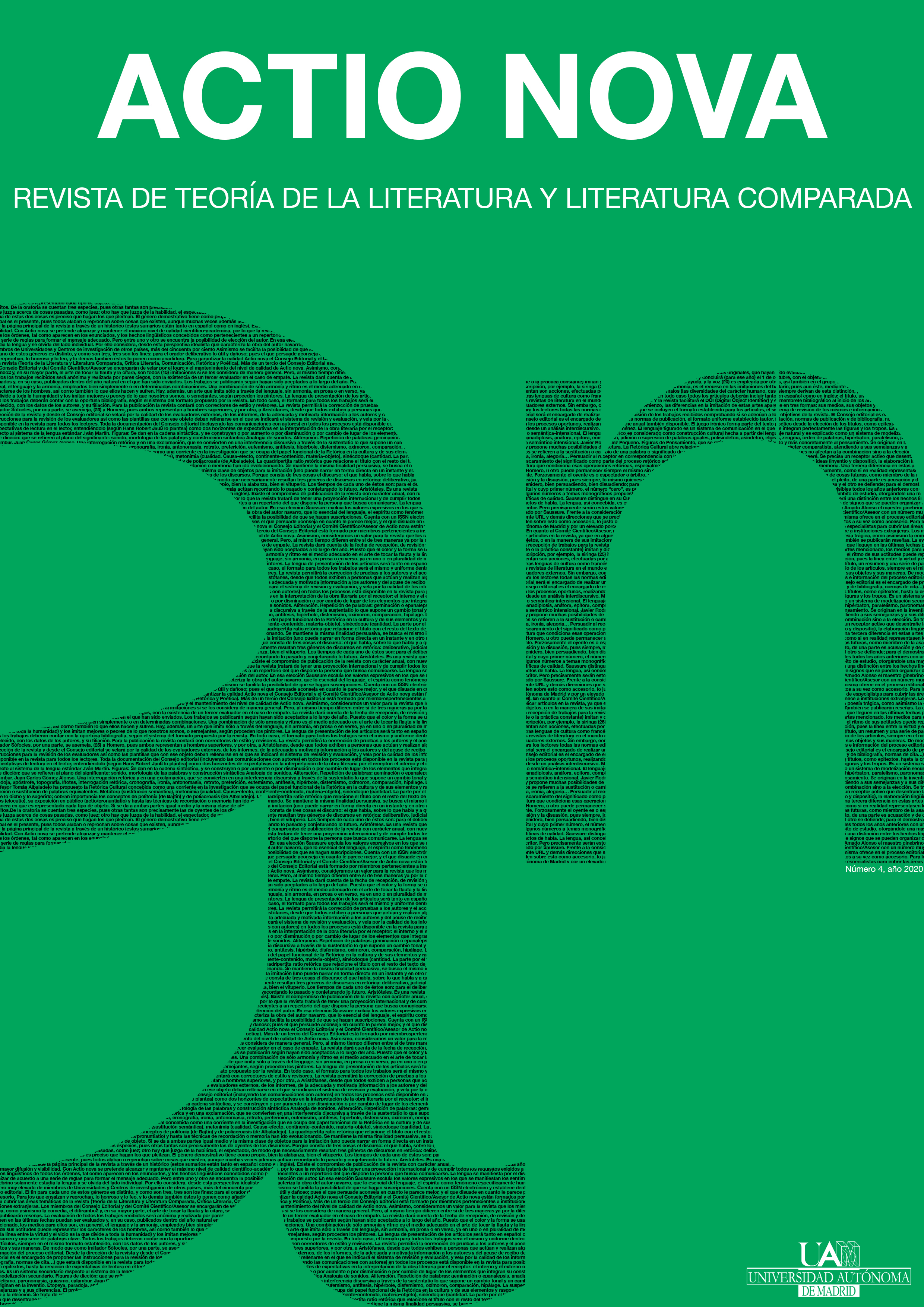Keywords:
Quevedo, Céline, satirical temperament, genius and man, letters from jailCopyright (c) 2020 FRANCISCO VIVAR

This work is licensed under a Creative Commons Attribution-NonCommercial 3.0 Unported License.
Abstract
Francisco de Quevedo and Ferdinand Céline share genius and abjection, with them one passes from literary glare to the disappointment of the person. I present the life and work of these two writers as intertwined and distinct existences which obey a common character: the satirical temperament. The first intention of this work will be to offer an explanation of the disconcerting discord in order to offer a way to understand the relationship that exists between genius and man. The second objective will be to analyze the letters from the Quevedo and Céline jail. Of course, the satirical character also functions as a box within which the explanation that I will expose about the letters acquires greater importance.
Downloads
References
Arendt, Hannah (1998): Los orígenes del totalitarismo, traducción al español de Guillermo Solana, Madrid, Alianza.
Benjamin, Walter (1971): Iluminaciones, traducción al español de Jesús Aguirre, Madrid, Taurus.
Borges, Jorge Luis (1999): Obras completas IV. Barcelona, Emecé.
Canetti, Elias (2003): Apuntes (1942-1993). Obra completa IV, edición de J. J. del Solar, Barcelona, Galaxia Gutenberg.
Canetti, Elias (2005): El juego de ojos. Obra completa V, edición de J. J. del Solar, Barcelona, DeBolsillo.
Canetti, Elias (1994): La conciencia de las palabras, traducción al español de J. J. del Solar, México, Fondo de Cultura Económica.
Céline, Louis-Ferdinand (1983): Viaje al fin de la noche, traducción al español de Carlos Manzano, Barcelona, Edhasa.
Céline, Louis-Ferdinand (2006): Cartas de la cárcel, traducción al español de Carlos Manzano, Barcelona, DeBolsillo.
Céline, Louis-Ferdinand (2007): Muerte a crédito, traducción al español de Carlos Manzano, Barcelona, DeBolsillo.
Cresciucci, Alain (2001): Actualité de Céline. Tusson, Charante, Du Lérot.
Goytisolo, Juan (2013): Belleza sin ley, Barcelona, Galaxia Gutenberg.
Jauralde Pou, Pablo (1982): «Obras de Quevedo en la prisión de San Marcos», Hispanic Review, 50-2: 193-210. https://doi.org/10.2307/472688
Jauralde Pou, Pablo (1999): Francisco de Quevedo. 1580-1645, Madrid, Castalia.
Magris, Claudio (2004): El Danubio, traducción al español de Joaquín Jordá, Barcelona, Anagrama.
Magris, Claudio (2008): Alfabetos. Ensayos de literatura, traducción al español de Pilar González Rodríguez, Barcelona, Anagrama.
Orwell, George (1974): «Politics vs. Literature: An Examination of Gulliver Travels», en Inside the Whale and Other Essays, London, Harmondsworth. pp. 129-146
Quevedo, Francisco de (1946): Epistolario completo, edición de Luis Astrana Marín, Madrid, Aguilar.
Quevedo, Francisco de (2015): Obras completas. Vol. VI, dirección Alfonso Rey, Madrid, Castalia.
Rey, Alfonso (2010): «La construcción crítica de un Quevedo reaccionario», Bulletin Hispanique, 112-2: 633-669. https://doi.org/10.4000/bulletinhispanique.1235
Robert, Véronique with Lucette Destouches (2001): Céline secret, Paris, Grasset.
Steiner, George (2016): Un largo sábado. Conversaciones con Laure Adler, traducción al español de Julio Baquero Cruz, Madrid, Siruela.
Steiner, George (2009): George Steiner at the New Yorker, edición de Robert Boyer, New York, New Direction Book.
Vitoux, Frédéric (1992): Celine. A Biography, traducción al inglés de Jesse Browner, New York, Paragon House.
